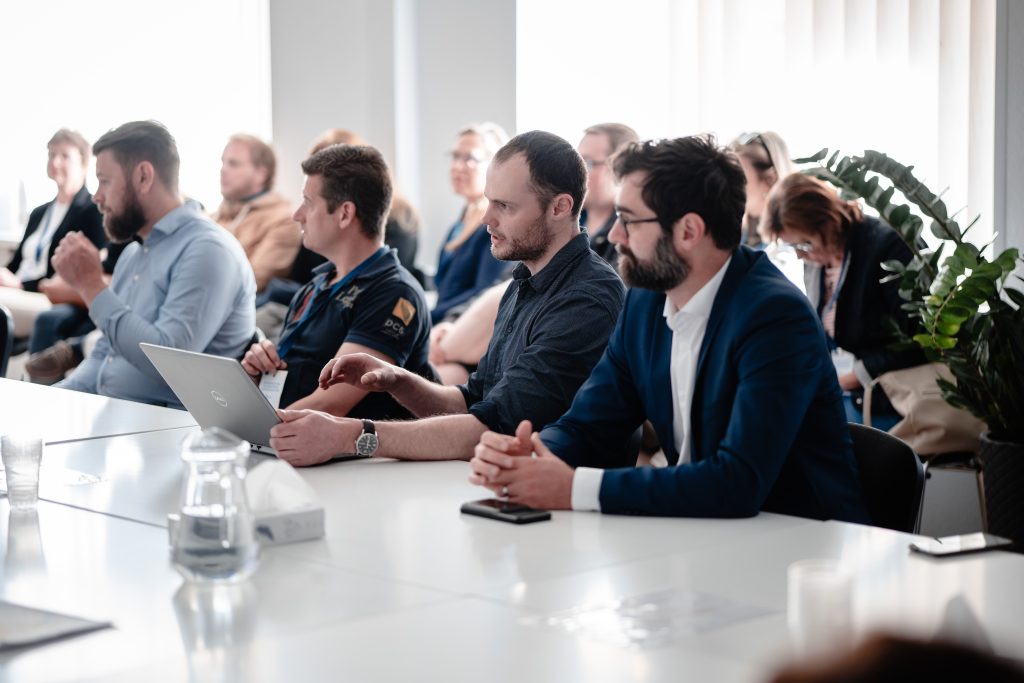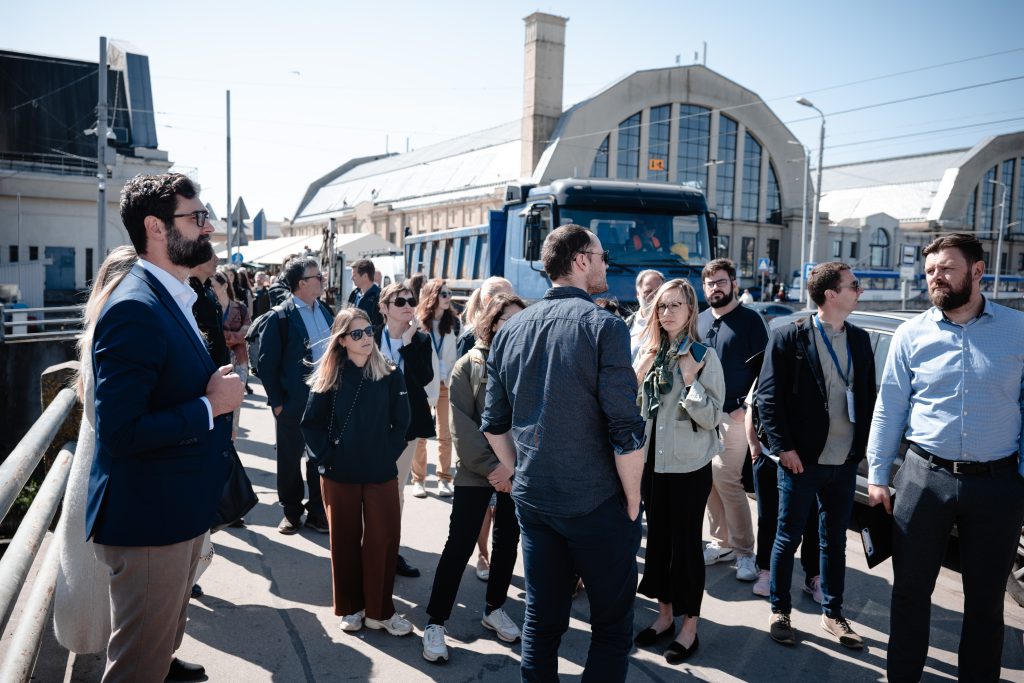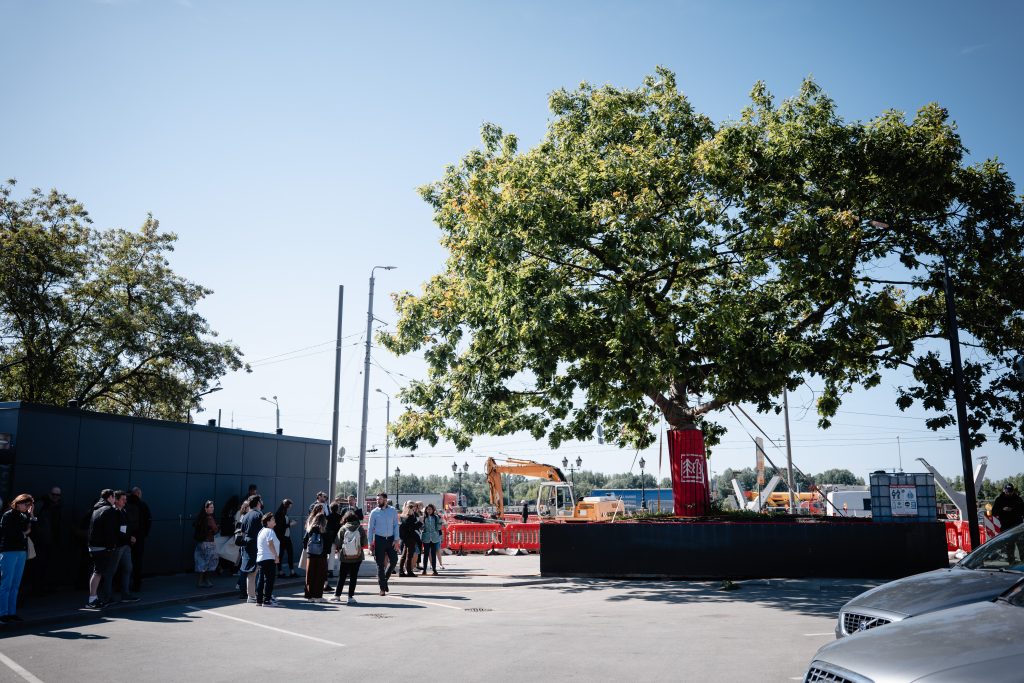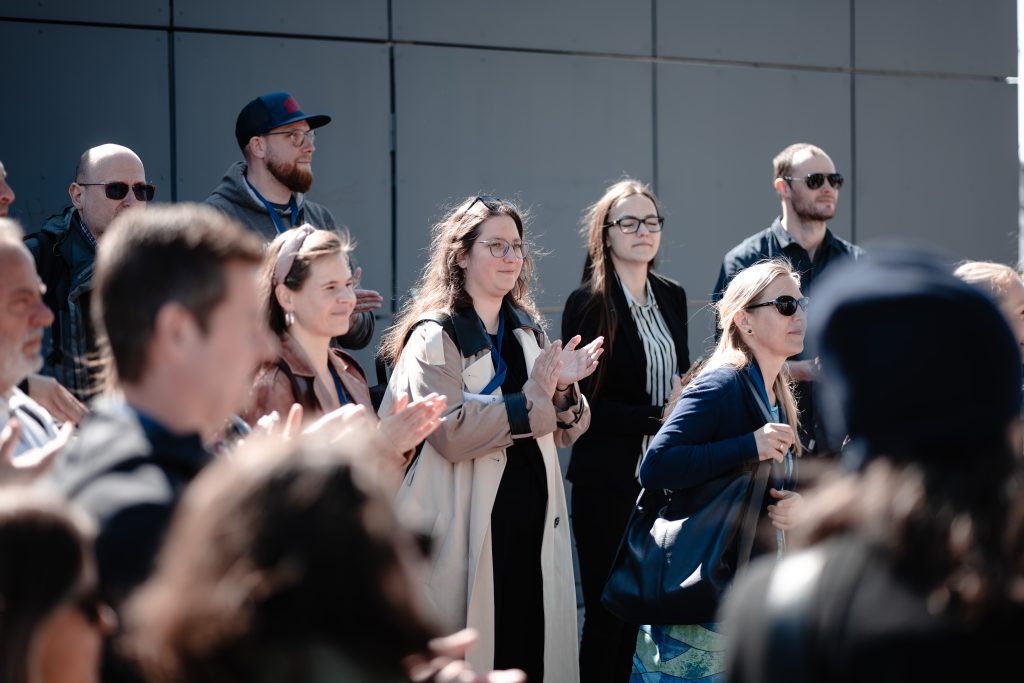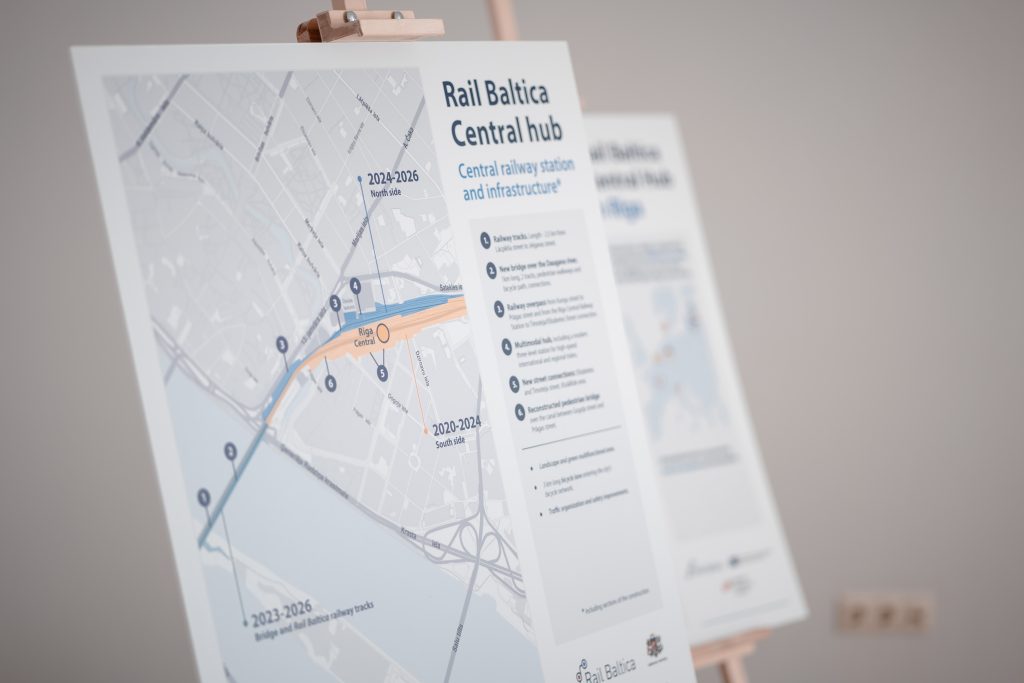Rail Baltica national implementing body in Latvia – “Eiropas Dzelzceļa līnijas” – in cooperation with Riga Planning Region and the Public Infrastructure Development Administration of the Riga City Council, hosted urban planning specialists from Italy, Slovakia, and Spain as they were eager to become more acquainted with the work progress and future Rail Baltica Riga Central Station integration with the city center of Riga.
After the meeting, European urban planners admitted that they are impressed by the scope of the project and appreciated the successful and modern urban planning that aligns with the latest European trends in mobility and urban well-being.
The Rail Baltica project acts as a catalyst for the development of the surrounding areas, transforming it from a railway project to a development project that changes the surroundings. The construction of Rail Baltica provides an impetus for the development of the city center, cooperating with the capital city in planning and improving the affected areas, creating new public spaces, enhancing transportation, pedestrian, and cycling infrastructure in the vicinity of the future Rail Baltica multimodal transport hub.
During the meeting, European urban planners were interested in learning about the integration of the European railway project into the capital city center, the development opportunities provided by the new railway project for the development of Riga’s neighborhoods, and the safe and inclusive urban solutions being implemented by the Rail Baltica implementers and the Riga City Council. Of particular interest was the implementation of the Rail Baltica project in the most congested area of the capital and how the construction works are progressing under such complex circumstances.
The meeting with European urban planners was organized within the framework of the IN-HABIT European funded project. IN-HABIT is an EU Horizon 2020 project called “Inclusive Health and Wellbeing” (IHW) aimed at promoting inclusive health and well-being initiatives in four small and medium-sized cities in Europe – Córdoba (Spain), Riga (Latvia), Lucca (Italy), and Nitra (Slovakia). In each city, the project utilizes underutilized resources (culture, food, human-animal connection, and environment) to improve and promote inclusive health and well-being initiatives. The project’s integrated approach combines technological, nature-based, cultural, and social innovations in selected urban areas to transform them into high-quality, multifunctional, and open public spaces.
Specialists in urban planning from Italy, Slovakia, and Spain familiarized themselves with the Rail Baltica Central Station and the integration project with the city center of Riga. This photo is part of the IN-HABIT publicity.

